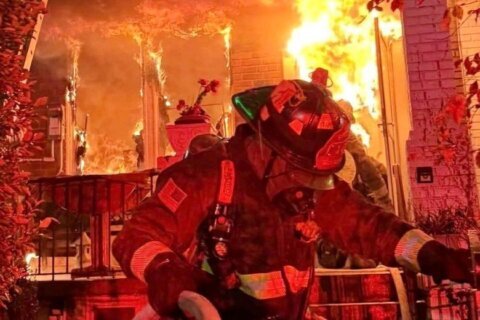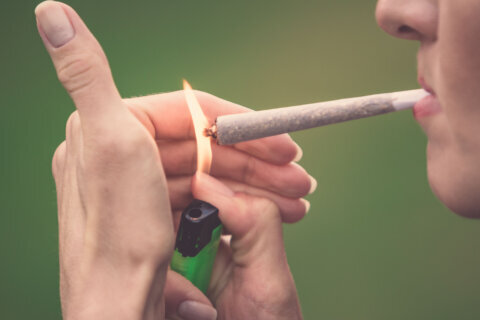The D.C. Council on Tuesday voted to ban the sale of flavored tobacco and menthol cigarettes.
It’s the second passage for the bill, which means it goes to the desk of Mayor Muriel Bowser.
The vote was 8 to 5, with council members raising questions about how the ban will be enforced, as well as its effects on D.C.’s Black community, who would see most of the supposed health benefits of the ban — but also bear the brunt of the enforcement.
The main point of contention among council members was the inclusion of menthol cigarettes in the ban and the disproportionate effect of the cigarettes — and the ban — on the Black community.
“Four out of five kids who use tobacco started with a flavored product,” said Council member Christina Henderson; “72% of high schoolers who use e-cigarettes use flavored e-cigarettes; 54% of youth ages 12 to 17 years old who smoke use menthol cigarettes, and one Juul pod delivers the same amount of nicotine as a full pack of 20 cigarettes.” She added that while only about a third of cigarettes are menthol, 85% of menthol users are Black.
Council member Robert White co-introduced the bill in January, but voted against it because of the inclusion of menthol cigarettes under the sales ban.
“The bill that we originally introduced was focused on young people,” he said, and the exotic flavors of e-cigarettes that are generally thought to have been introduced specifically to draw young people in.
That was Council Chair Phil Mendelson’s reasoning in voting against it as well: “I probably would be voting yes” if it were limited to flavors directly aimed at children, such as bubble gum and mango, he said.
“The menthol piece is deeply troubling to me,” said Council member Kenyan McDuffie of Ward 5.
White said the bill, which bans the sale but not the possession of flavored tobacco, would drive customers to Maryland and Virginia and create a black market for the products. Council member Charles Allen had introduced an amendment that would place enforcement of the ban not on the D.C. police, but on the District’s Department of Consumer and Regulatory Affairs.
But McDuffie predicted the bill would “create a black market, and … in some way, shape or form, law enforcement — particularly [D.C. police], will be involved in enforcement of this law.”
White agreed. “We saw a young man killed in our city by law enforcement because he didn’t have a helmet on his scooter. I have seen, with my own eyes, young people surrounded by swarms of police for playing on a playground that was locked, for running down a street with no other evidence. … It may be our intention to not have a disproportionate enforcement. But that doesn’t mean anything in the real world.”
Members Allen, Mary Cheh, Vincent Gray, Henderson, McDuffie, Brianne Nadeau, Brooke Pinto and Elissa Silverman voted yes; Robert White, Trayon White, Anita Bonds, Janeese Lewis George, McDuffie and Mendelson voted no.
A move to start over
Opponents of the bill also introduced a motion to recommit — basically starting the legislative process all over again — because the bill had changed so much since the last public hearing in 2020.
Ward 4 member Lewis George said, “People who oppose banning all flavored tobacco products had no way of knowing that banning all flavored tobacco products was even being considered by the council because the bill hearing didn’t include those products. It was just about electronic smoking devices. … It’s a materially different legislation.”
She added, “There are times to act with urgency; there are times that public health needs need to outweigh personal choice, or businesses’ bottom line — we’ve had a year of those circumstances. This bill doesn’t need to be one of them, though.”
“The hearing was held a year ago,” McDuffie said, when some members of the council weren’t even in their seats.
Allen, however, said, “If you want to vote against the bill, vote against the bill. It’s pretty straightforward. I don’t think it’s appropriate to hide behind the process.”
Council member Cheh, of Ward 3, said, “This may be, for some, a tough choice. I don’t think it’s that tough. … The tobacco industry aims at young people. If you haven’t smoked by 26, you probably will not.”
Menthol makes tobacco go down easier, she said, and “that’s what provokes young people to try this … half of high school students who smoke use menthol cigarettes.”
Members voted on the motion to recommit in the opposite direction to their vote on the bill, except that McDuffie voted in favor of restarting the process.








